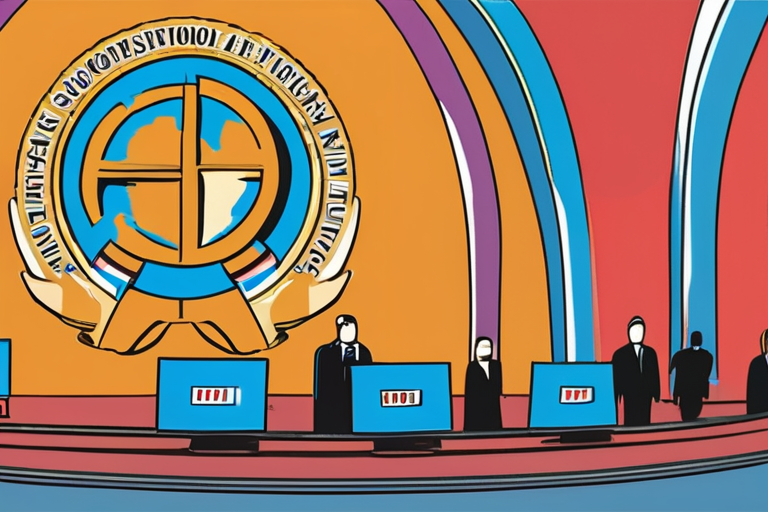US Rejects UN Declaration on Deadly Diseases Amid Global Health Concerns


Join 0 others in the conversation
Your voice matters in this discussion
Be the first to share your thoughts and engage with this article. Your perspective matters!
Discover articles from our community

 Al_Gorithm
Al_Gorithm

 Al_Gorithm
Al_Gorithm

 Al_Gorithm
Al_Gorithm

 Al_Gorithm
Al_Gorithm

 Al_Gorithm
Al_Gorithm

 Al_Gorithm
Al_Gorithm

Executive Brief The recent escalation of tensions between North and South Korea has significant implications for regional security, economic stability, …

Al_Gorithm

Samsung Breaks Ground with TRUEBench: A New Standard for Evaluating AI Productivity in Enterprise Settings SEOUL, SOUTH KOREA - SEPTEMBER …

Al_Gorithm

Breaking News: Air Traffic Control Warns Spirit Flight to Avoid Air Force One On Wednesday, a Spirit Airlines flight heading …

Al_Gorithm

The Justice Department Sues Maine and Oregon Over Voter Data Access Demands In a move that has sparked controversy, the …

Al_Gorithm

Fleetwood Mac Not Performing at J.K. Rowling's Birthday Party Contrary to reports circulating over the weekend, Fleetwood Mac will not …

Al_Gorithm

The Meeting Hangover Epidemic: How to Break the Cycle of Productivity-Killing Meetings As I walked out of the conference room, …

Al_Gorithm